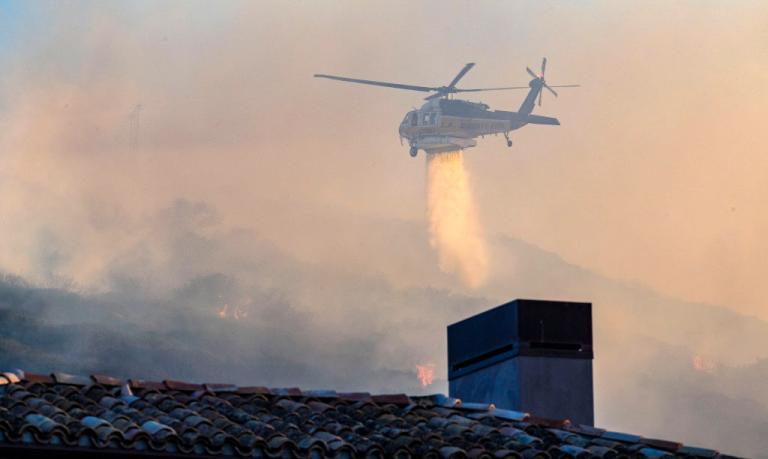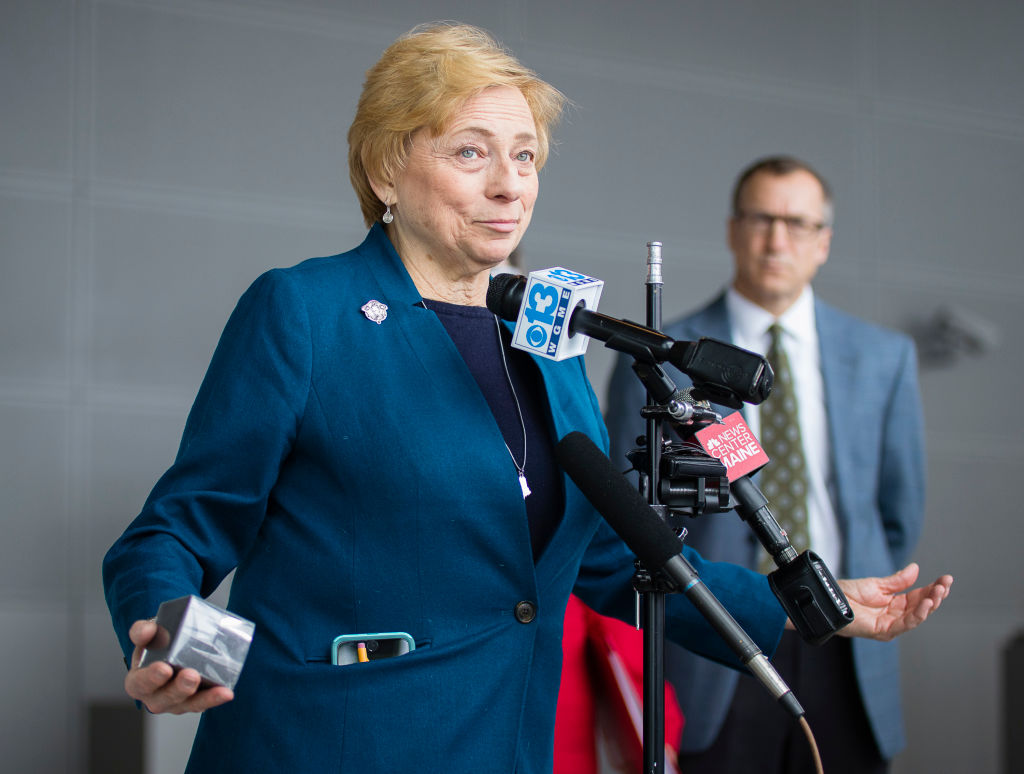Ever since Democrat Janet Mills was elected governor of Maine in 2018, she has been a strong advocate for renewable energy in general and wind energy in particular. The state has tremendous potential for wind production, given the high wind velocities off its coast, and it has committed to procuring 100 percent of its energy from clean sources by 2050. Earlier this year, in an attempt to supercharge wind energy production in the state, Mills proposed legislation to speed up permitting for wind ports, sites where wind turbines could be built before being deployed offshore.
That bill got the votes needed to pass in the state legislature — only to be vetoed by Mills herself earlier this week. At issue are amendments to the bill made in the state senate, which require the undertaking to incorporate Project Labor Agreements, or PLAs, a type of collective bargaining agreement in the construction industry that streamlines work on projects and establishes standards for wages and working conditions — standards that are typically more robust than those that would prevail in their absence.
In a letter vetoing the bill, the governor said the provision would have a “chilling effect” on companies that are non-unionized, raise construction costs for the wind port which would eventually be borne by Maine taxpayers, and lead to out-of-state workers being bussed to Maine. The idea is that the PLAs will lead to fewer firms pursuing contracts for work on the wind project — or firms will increase costs to meet the PLA requirements — leading to a higher overall price tag and less employment for local residents. (Only 10 percent of construction workers in Maine are in a union.)
“We must maximize, not sideline or limit, benefits to Maine workers and companies and minimize costs to Maine taxpayers and ratepayers,” Mills wrote. “It is imperative that investment in offshore wind facilities foster opportunities for Maine’s workforce and construction companies to compete on a level playing field for this work.”
The veto does not appear to be the end of the road for the legislation. In the letter, Mills emphasized that her office is willing to work with lawmakers, and the Maine Senate is expected to reconvene next week. Environmental and labor advocates told Grist that a number of legislative pathways to pass the bill still remain open, and that Mills’ office is actively involved in negotiations with lawmakers.
“The veto is not unexpected and not the end of the story,” said Kathleen Meil, senior director of policy and partnerships with the environmental group Maine Conservation Voters.
Still, Mills’ veto of a bill she herself proposed is an example of the tensions that can emerge between climate and labor priorities. Labor unions in Maine have been a strong proponent of wind energy investments in the state. The industry is expected to generate thousands of jobs, and unions in the state have argued that PLAs are a critical mechanism to ensure that those jobs pay well and adequately protect workers.
Arguments that PLAs raise construction costs and would make Maine uncompetitive are unfounded, according to Francis Eanes, executive director of the Maine Labor Climate Council, a coalition of a dozen unions across the state. “These are routinely used tools across the construction industry writ large, and it’s the case in the offshore wind industry,” he said.
Indeed, researchers have found that projects with PLA requirements attract a similar number of bidders as those without PLA requirements and do not result in higher costs. One study by researchers at the University of California, Berkeley, evaluated PLA and non-PLA projects at community colleges in California and found that PLA projects actually had a slightly higher number of bidders — and similar costs — compared to non-PLA projects. Another study that evaluated school projects in New England found no evidence that PLAs raised or lowered costs.
The Maine government also has recent experience with PLAs in which Mills’ fears appear not to have borne out. A law passed two years ago authorizing construction of an offshore wind research array included a PLA provision, as did a law providing $20 million for building affordable housing in the state. In the case of the latter, the Maine State Housing Authority, which was in charge of disbursing the funds, received requests for double the amount of funding available from builders.
“When we hear ‘the sky is going to fall,’ that’s a useful talking point from construction firms and other players in the industry who are not interested in sharing power,” said Eanes.
Mills’ veto came a day after the Associated General Contractors of Maine, a group representing several construction firms in the state, sent a letter urging her to veto the bill. The letter warned that PLA provisions in the bill would lead to higher costs for energy consumers and “create an unfair advantage for out-of-state skilled workers.”
A compromise may still be possible in the coming weeks. Lawmakers have floated language that would prioritize workers from Maine in order to allay Mills’ concerns that the inclusion of a PLA provision would lead to workers being bussed in from out of state. Legislators have also suggested including provisions that emphasize that all contractors will be eligible to work with the state, regardless of whether or not their workers are unionized.
“We spent months building a really delicate coalition, not just with labor and environmental and faith community groups, but with fishing communities as well,” said Eanes. “We see lots of upside to finding a resolution with the governor that can get past the ideological opposition, recognize that this is how it’s been done everywhere else, and seize this amazing opportunity for Maine to build an industry that could be a once-in-a-generation game changer.”




